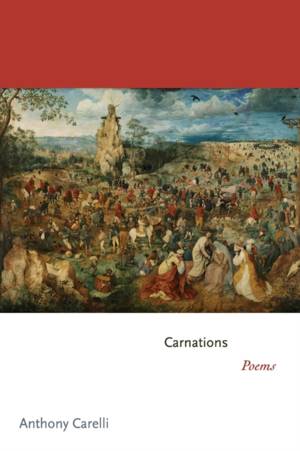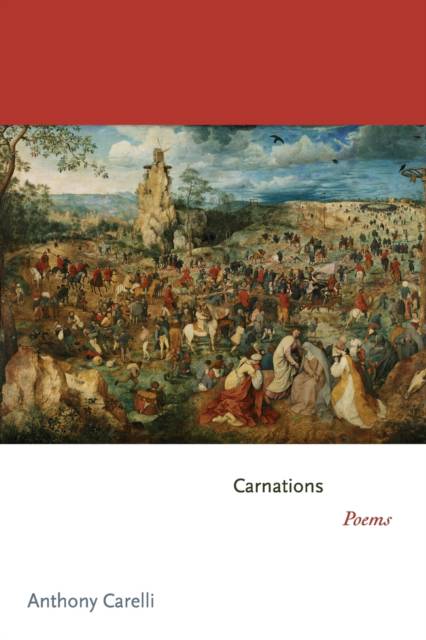
- Retrait gratuit dans votre magasin Club
- 7.000.000 titres dans notre catalogue
- Payer en toute sécurité
- Toujours un magasin près de chez vous
- Retrait gratuit dans votre magasin Club
- 7.000.0000 titres dans notre catalogue
- Payer en toute sécurité
- Toujours un magasin près de chez vous
Description
In Anthony Carelli's remarkable debut, Carnations, the poems attempt to reanimate dead metaphors as blossoms: wild and lovely but also fleeting, mortal, and averse to the touch. Here, the poems are carnations, not only flowers, but also body-making words. Nodding to influences as varied as George Herbert, Francis Ponge, Fernando Pessoa, and D. H. Lawrence, Carelli asserts that the poet's materials--words, objects, phenomena--are sacred, wilting in the moment, yet perennially renewed. Often taking titles from a biblical vocabulary, Carnations reminds us that unremarkable places and events--a game of Frisbee in a winter park, workers stacking panes in a glass factory, or the daily opening of a café--can, in a blink, be new. A short walk home is briefly transformed into a cathedral, and the work-worn body becomes a dancer, a prophet, a muse.
______
From Carnations:
THE PROPHETS
Anthony Carelli A river. And if not the river nearby, then a dream
of a river. Nothing happens that doesn't happen
along a river, however humble the water may be. Take Rowan Creek, the trickle struggling to lug
its mirroring across Poynette, wherein, suspended,
so gentle and shallow, I learned to walk, bobbing at my father's knees. Later, whenever we tried
to meander on our inner tubes, we'd get lodged
on the bottom. Seth, remember, no matter how we'd kick and shove off, we'd just get lodged again?
At most an afternoon would carry us a hundred feet
toward the willows. We'd piss ourselves on purpose just to feel the spirits of our warmth haloing out.
And once, two bald men on the footbridge, bowing
in the sky, stared down at us without a word.
Spécifications
Parties prenantes
- Auteur(s) :
- Editeur:
Contenu
- Nombre de pages :
- 72
- Langue:
- Anglais
- Collection :
- Tome:
- n° 59
Caractéristiques
- EAN:
- 9780691149455
- Date de parution :
- 03-04-11
- Format:
- Livre broché
- Format numérique:
- Trade paperback (VS)
- Dimensions :
- 156 mm x 235 mm
- Poids :
- 136 g

Les avis
Nous publions uniquement les avis qui respectent les conditions requises. Consultez nos conditions pour les avis.






